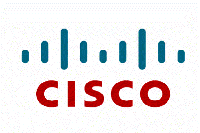Cisco acquires Tandberg for $3 billion
Video will become "ubiquitous" according to Cisco, following its $3 billion acquisition of Tandberg.

Enterprises are "entering the next phase of communication", Marthin De Beer, senior vice president of Cisco's emerging technologies group, claimed following the company's $3 billion purchase of video conferencing company Tandberg.
The deal, which was announced yesterday, values the company's remaining shares at 25 per cent more than their three-month weighted average, claimed Cisco.
Tandberg is a Norwegian company that specialises in smaller teleconferencing hardware and networking, including hardware and software for desktop computers.
Cisco's current teleconferencing strength lies in larger, enterprise-level setups such as its Cisco Telepresence rooms, which allow by-the-hour rental of video conferencing facilities.
De Beer said today that the acquisition of Tandberg would extend "Cisco's telepresence portfolio all the way from the desktop to the boardroom."
"We strongly believe that this interoperability will accelerate the market, to the benefit of all users, and help make video ubiquitous in the enterprise," he added.
De Beer echoed a claim made by Ned Hooper, Cisco's chief strategy officer, that the global "collaboration" market is worth $34 billion. Currently, video conferencing accounts for only $4 billion.
Get the ITPro. daily newsletter
Receive our latest news, industry updates, featured resources and more. Sign up today to receive our FREE report on AI cyber crime & security - newly updated for 2024.
"We think that the combined efforts of Cisco and Tandberg will accelerate market adoption of video," said De Beer.
He added that he thought the acquisition would "expand the market for video in the enterprise, driving opportunity and establishing a new industry around video solutions and applications."
Tandberg's chief executive, Fredrik Halvorsen, added: "This transaction is a vote of confidence, not just in Tandberg but in our technology and our people."
Upon the completion of the deal, expected in the first half of 2010, Halvorsen will lead Cisco's TelePresence Technology Group, reporting to Marthin DeBeer.
Tandberg employs 1,500 people globally, and has offices in the UK. The company hasn't commented on what will happen to its employees but said in a statement that it considered its employees "extremely important".




